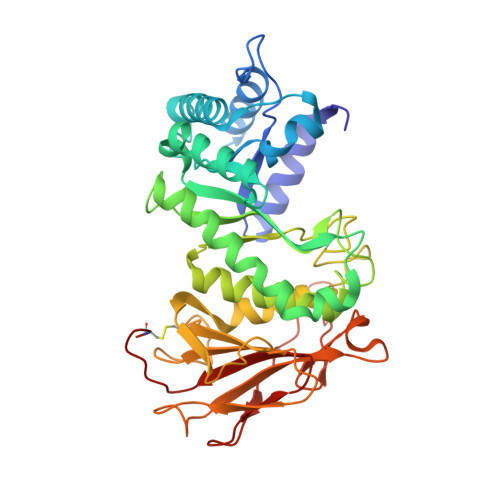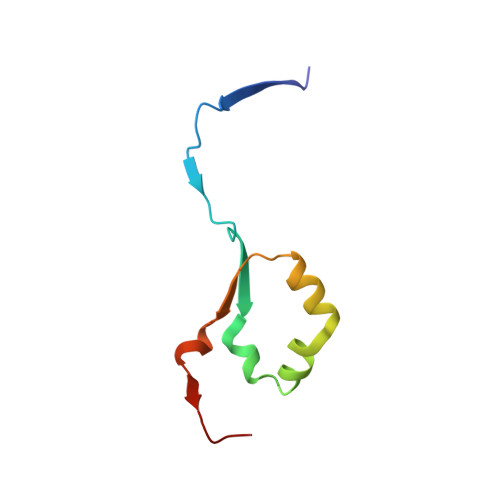4-O-Substituted Glucuronic Cyclophellitols are Selective Mechanism-Based Heparanase Inhibitors.
Borlandelli, V., Armstrong, Z., Nin-Hill, A., Codee, J.D.C., Raich, L., Artola, M., Rovira, C., Davies, G.J., Overkleeft, H.S.(2023) ChemMedChem 18: e202200580-e202200580
- PubMed: 36533564
- DOI: https://doi.org/10.1002/cmdc.202200580
- Primary Citation of Related Structures:
8B0B, 8B0C, 8B0D, 8B0E - PubMed Abstract:
Degradation of the extracellular matrix (ECM) supports tissue integrity and homeostasis, but is also a key factor in cancer metastasis. Heparanase (HPSE) is a mammalian ECM-remodeling enzyme with β-D-endo-glucuronidase activity overexpressed in several malignancies, and is thought to facilitate tumor growth and metastasis. By this virtue, HPSE is considered an attractive target for the development of cancer therapies, yet to date no HPSE inhibitors have progressed to the clinic. Here we report on the discovery of glucurono-configured cyclitol derivatives featuring simple substituents at the 4-O-position as irreversible HPSE inhibitors. We show that these compounds, unlike glucurono-cyclophellitol, are selective for HPSE over β-D-exo-glucuronidase (GUSB), also in platelet lysate. The observed selectivity is induced by steric and electrostatic interactions of the substituents at the 4-O-position. Crystallographic analysis supports this rationale for HPSE selectivity, and computer simulations provide insights in the conformational preferences and binding poses of the inhibitors, which we believe are good starting points for the future development of HPSE-targeting antimetastatic cancer drugs.
- Bio-organic Synthesis, Leiden Institute of Chemistry (LIC), Leiden University, Gorlaeus Laboratories, Einsteinweg 55, 2333 CC, Leiden, The Netherlands.
Organizational Affiliation:



















